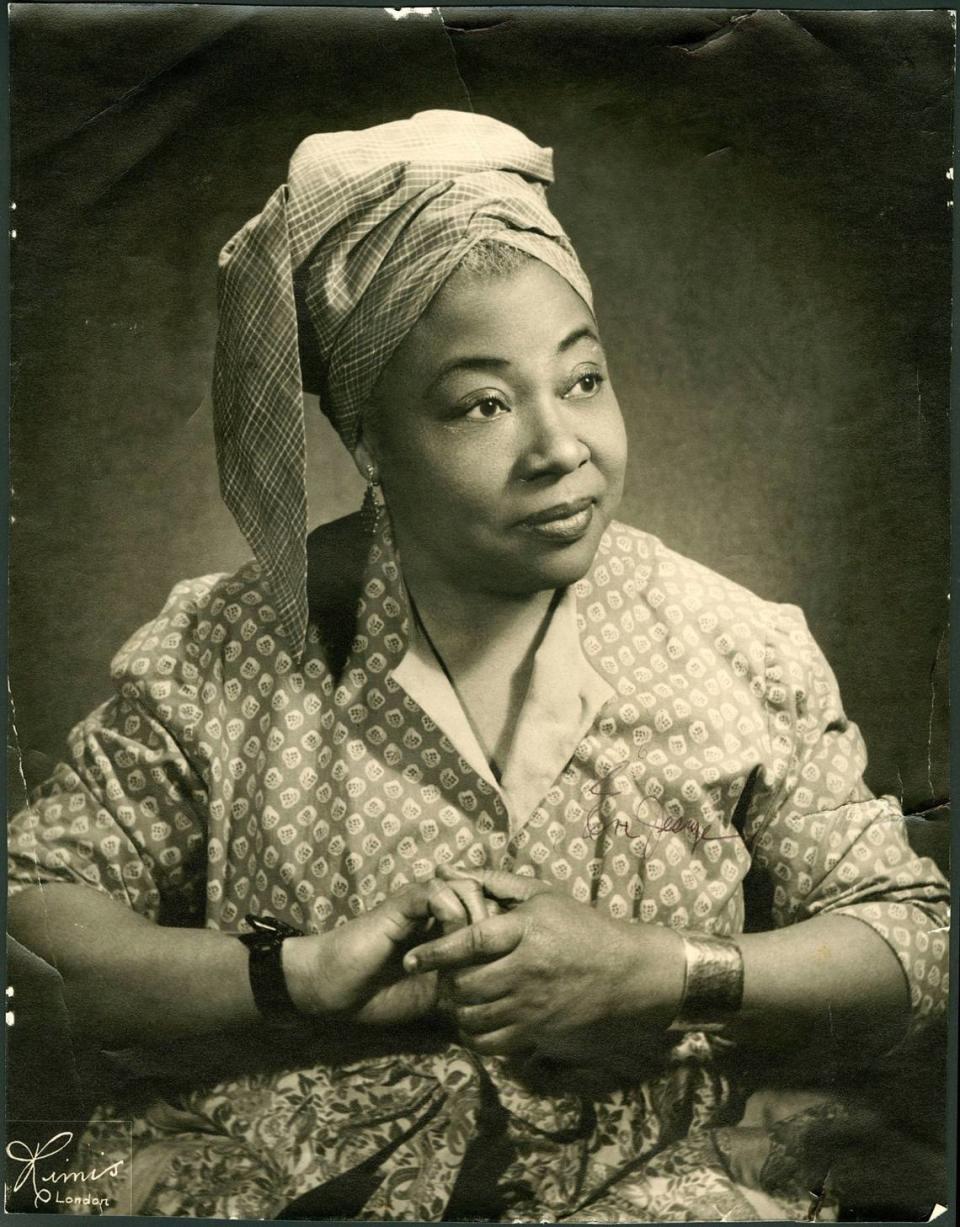‘Canon for Racial Reconciliation’ will have its world premiere in Kansas City
The Eastern Orthodox Church and the Black American church seem very different. While the Orthodox has a very ritualistic liturgy that follows ancient rubrics and uses formally written music, the Black church is far more improvisational, known for its lively, free-form and emotional style of service.
Cardinalis, directed by Anthony Maglione, and Ordained, a gospel choir led by Isaac Cates, will attempt to reconcile these traditions and also the Black and white communities when they present “Canon for Racial Reconciliation” Nov. 5 at Community Christian Church.
The work was commissioned by William Jewell College and was composed by Nicholas Reeves, an expert in Orthodox chant, and Cates, who is steeped in the gospel tradition. Reeves approached Maglione with his idea for the “Canon” in the tumultuous year of 2020.
“I remember it very clearly,” Reeves said. “I am a church musician, and after George Floyd was killed, I was in church, and our priest gave a passionate sermon about how the political divisiveness in our country is holding us back from doing decent, human things.”
Reeves’ idea was to use a text written by Carla Thomas called the Canon for Racial Reconciliation. Thomas is a member of the Fellowship of St. Moses the Black, an organization for Black members of the Orthodox Church.
“She wrote the ‘Canon’ years before the George Floyd murder,” Reeves said. “But it had resonance for Orthodox people because it looks at race relations through the lens of a Black woman, but it’s done in the formality of an Orthodox church service.”

Maglione liked Reeves’ idea, but suggested that Reeves collaborate with Cates to authentically incorporate the Black experience.
“I suggested we pair with Isaac, and we came up with the idea to have both choirs and two conductors,” Maglione said. “Isaac and I are going to jointly lead this production. I pitched the idea to William Jewell, and the administration jumped at it. They said this is the kind of art we want to support. That’s the main reason we’re doing it because the administration committed a not insignificant amount of money to make sure this production can happen.”
To compose the work, Reeves and Cates started learning about each other’s religious traditions.
“We just started living in each other’s worlds,” Cates said. “I had never been to an Orthodox service, so I looked at some of the Orthodox services online at St. Tikhon’s monastery and other places. To actually see them worship in real time was very helpful, to see how the liturgical elements flowed.”
For his part, Reeves studied the Black gospel tradition as it is, and not as it is necessarily depicted in movies. Reeves and Cates decided to structure their “Canon” like a Black worship service. They set Thomas’ text to music, but they also decided to use the music of another composer, Eva Jessye, between the movements of the “Canon.” Jessye was a Black woman who was born in Coffeyville, Kansas, in 1895. Reeves and Cates are using selections from Jessye’s 1927 collection, “My Spirituals.”

“Jessye was a part of the Harlem Renaissance and led the choir at the landmark March on Washington for civil rights in 1963,” Reeves said. “She was also the chorus master for the premiere of ‘Porgy and Bess,’ and she had her own illustrious career.”
Maglione, a highly regarded composer himself, is pleased with the finished product.
“What I think is remarkable about this is even in the midst of things that will sound quintessentially like gospel music or reminiscent of the Orthodox tradition, there will be flashes within those of the other,” Maglione said. “It is an amalgamation that I have never seen before.”
The “Canon” will be sung in English by more than 70 singers, most of whom are professionals or stellar vocal students from William Jewell College, where Maglione is director of choral studies. The singers will be accompanied by a guitar, trumpet, violin, piano and gospel organ, a smaller electronic alternative to a massive pipe organ.
Reconciliation is sorely needed in the world today. The “Canon for Reconciliation” was born out of the hope that it might contribute to reconciliation between Black and white people and their problematic history, but with the recent terrorist attack in Israel, Reeves sees the work as a broader plea for reconciliation between all peoples and nations in this troubled world.
“I think the only way we can look forward to a bright future is if we don’t see boundaries and barriers with names, skin color, national origin, socioeconomic background or any other form of identity because then we label people,” Reeves said. “We call them ‘other,’ and then they’re not worthy of our humanity. The message of this piece is pretty clear: Everyone is worthy of humanity, even the people who treat you the worst.”
7:30 p.m. Nov. 5. Community Christian Church, 4601 Main St. $15-$25. tinyurl.com/4wycm4ne.
Lyric Opera of Kansas City — Sound of Music
Richard Rodgers and Oscar Hammerstein’s “The Sound of Music,” which opened on Broadway in 1959, won nine Tony Awards, including best musical. It is safe to say that it has become a bedrock work in the musical theater canon. But in recent years, it is starting to be taken seriously by the opera world.
The Lyric Opera of Kansas City will give “The Sound of Music” the full-blown opera treatment Nov. 4 to 12 at the Muriel Kauffman Theatre.
“The Sound of Music” certainly has all the drama of grand opera, with its story of the musically gifted Von Trapp family and their escape from Nazi-occupied Austria. The Lyric’s production is brand new and large scale, and features a cast of superb singers and some very gifted younger vocalists, as well.
7:30 p.m. Nov. 4, 8 and 10 and 2 p.m. Nov. 11 and 12. Muriel Kauffman Theatre, Kauffman Center for the Performing Arts. $48-$218.50. 816-471-7344 or kcopera.org.
Harriman-Jewell Series — Pixar’s Coco in Concert
Just in time for the Day of the Dead, the Harriman-Jewell Series will present Pixar’s Coco in Concert, featuring live mariachi music from Orquesta Folclórica Nacional de México. The story is about Miguel, a Mexican boy and aspiring musician, who visits the Land of the Dead to have his deceased grandfather help him reverse his family’s ban on music.
Pixar’s films are always a treat for the whole family, but children will be even more entranced with the addition of lively music. And don’t worry about the Land of the Dead being too gloomy for the kids. In “Coco,” it’s a lively, colorful place. With great voice actors like Benjamin Bratt and Edward James Olmos and lots of eye candy and thrilling live music, “Coco” is sure to enchant adults, as well.
7 p.m. Nov. 3. Folly Theater, 300 W. 12th St. $12.50-$100. 816-415-5025 or hjseries.org.
KCKCC Chamber Choir presents Missa Lucis
The Kansas City, Kansas Community College Chamber Choir will perform the “Missa Lucis” by Justin Binek on Oct. 29 at Village Presbyterian Church. In addition to the choir, there will be a rhythm section, saxophone and vocal soloists. Binek brings a jazz sensibility to the ancient Roman liturgy, and the result is an audience-friendly and uplifting work.
3 p.m. Oct. 29. Village Presbyterian Church, 6641 Mission Road. Free. villagepres.org.
You can reach Patrick Neas at [email protected] and follow his Facebook page, KC Arts Beat, at www.facebook.com/kcartsbeat.
